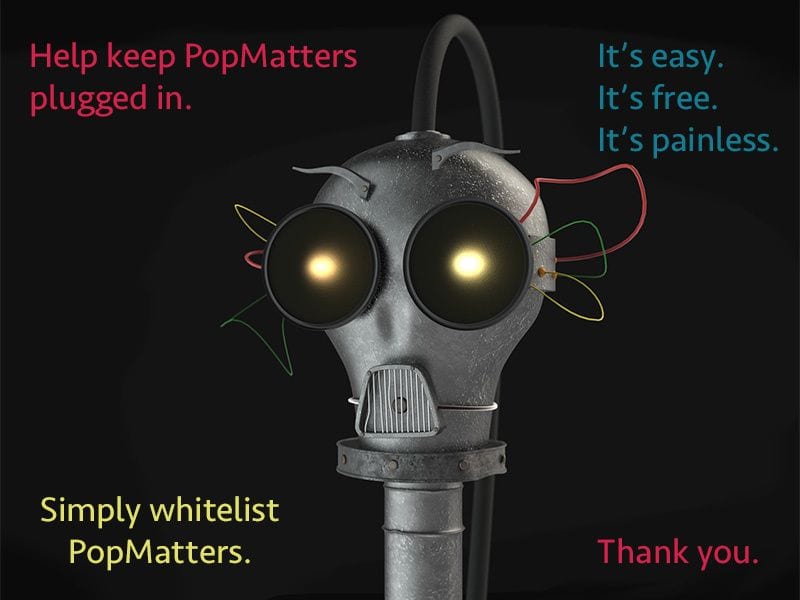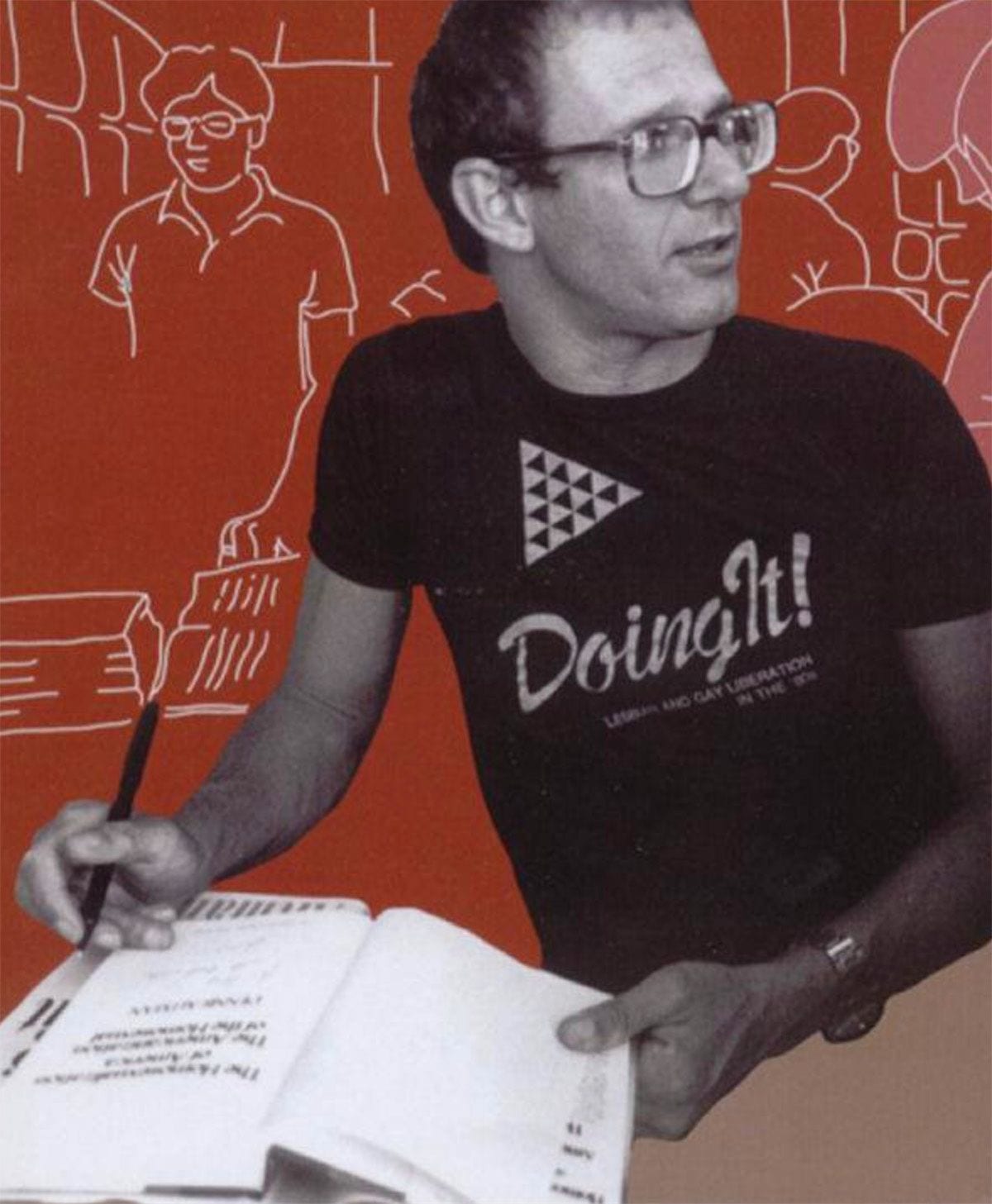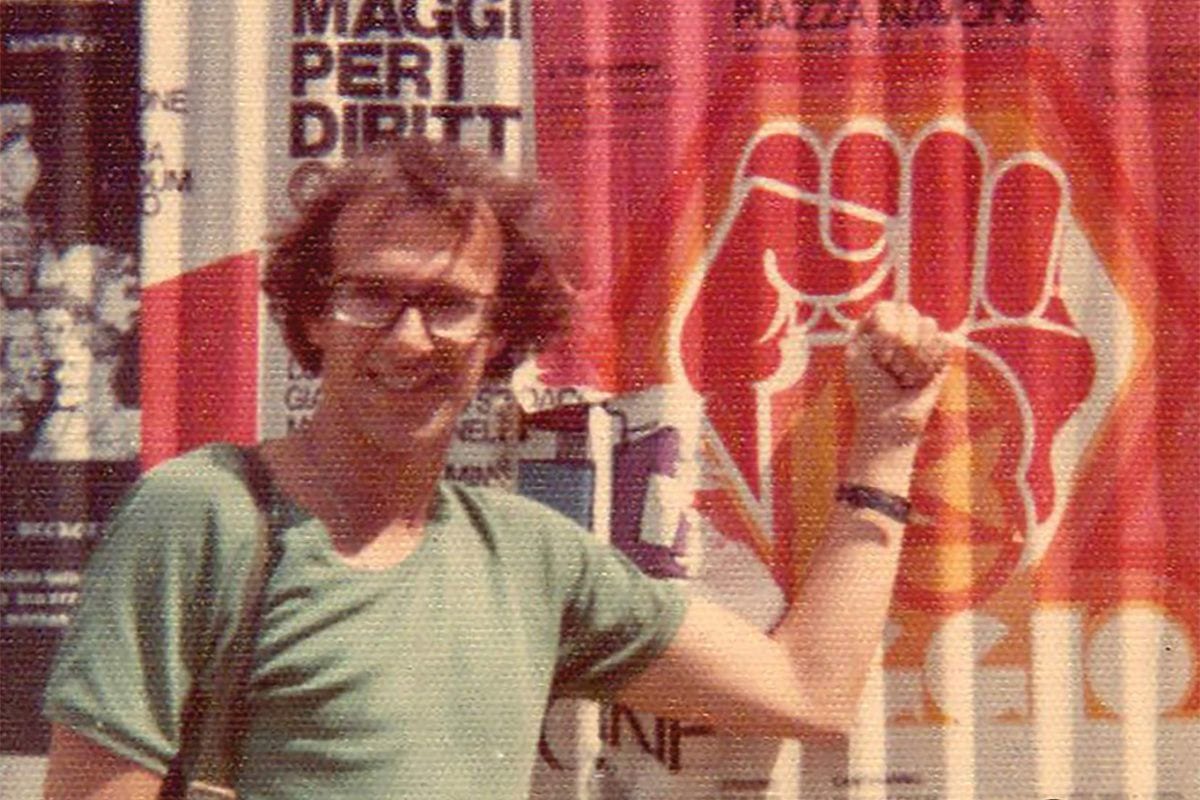
In today’s world of identity politics, with its alphabet soup acronyms that mix gender and sexual categories in a way that prizes “inclusivity” at the expense of conceptual clarity, the insights of earlier activist movements, like gay liberation, might seem quaint. More likely, those who embrace “LGBTQIA+” aren’t even acquainted with those ideas. That’s unfortunate because they’re very much worth revisiting and engaging with.
Dennis Altman, an early gay liberation theorist and activist, has made and chronicled the movement’s history. Since the publication of his first book, Homosexual: Oppression and Liberation in 1971, Altman’s work has focused on theories and practices of sexuality, particularly the emergence and growth of the gay and lesbian movement and how sexual identities have become globalized, largely through the influence of American identity politics. He has also analyzed the political and cultural impact of AIDS and, for some 30 years, he has been an activist in the global response to the epidemic.
He currently is a Professorial Fellow in Human Security at La Trobe University in Melbourne, where he has taught for many years. He has published 14 books, beginning with Homosexual: Oppression and Liberation, include Coming out in the Seventies (1979); AIDS in the Mind of America (1982); The Homosexualization of America (1982); AIDS and the New Puritanism (1986); and, more recently, Global Sex (2001), Gore Vidal’s America (2005), The End of the Homosexual? (2013), and Queer Wars (2016).
Early on, Altman was Influenced by a radical reading of Freud that emphasized his ideas about human beings’ universal bisexual potential. He was an admirer, albeit critical, of “post-Marxist” social critic Norman O. Brown, whose book, Life Against Death: The Psychoanalytical Meaning of History enjoyed a certain vogue in the ’60s. And though never a rigorous Marxist, Altman maintained that Marx’s ideas are as essential to thinking about social change as are Freud’s about sexuality. His interest in political economy and international relations has been consistent throughout five decades of writing and activism, distinguishing him from most gay intellectuals.

Robot by Thor_Deichmann (Pixabay License / Pixabay)
Altman’s influence has been acknowledged in various, and sometimes surprising ways. He was lauded by radical lesbian feminist Jill Johnston who, in a 1972 New York Times review of several gay books, including Altman’s Homosexual: Oppression and Liberation, wrote that “Among all the books to date by and about the new political homosexual, the Altman book is a pleasure.” Besides praising Altman for providing “a penetrating analysis of the political premises and goals and philosophical background of the movement,” she singled him out as “the first man to recognize the woman.” (Her review was titled, “Lesbians Are Homosexuals Too”.) “I was going to say to recognize the woman and her oppression as pivotal, in the strategy and goals of the sexual revolution, and that’s true, he does. But I would like to underscore his marked difference from the others by saying he recognizes the woman, period.”
Gore Vidal paid tribute to Altman in the preface to a 1995 edition of his groundbreaking gay-themed 1948 novel, The City and the Pillar. In footnotes to his novel, Kiss of the Spider Woman, Argentinian writer Manuel Puig cited Homosexual: Oppression and Liberation as one of the first chronicles of the gay and lesbian liberation movement. Jeffrey Weeks, an influential British scholar of sexuality and a contemporary of Altman’s, has hailed Altman’s work for “anticipating” rather than just documenting social change.
Dennis Patkin Altman was born in Australia in 1943 to Jewish immigrant parents from Europe. He came to the United States when he was 21 to do his graduate studies at Cornell University. He lived in the US for eight years, mostly in New York and California, and has returned many times since then. In Unrequited Love: Diary of an Accidental Activist, he notes how the time he spent in New York in the early ’70s changed his life, setting him on the course that he’d follow for the next 40-odd years.
The “unrequited love” is his and Australia’s attraction to and fascination with the United States, a nation that cares far less about his homeland. (American myopia about Australia, and indeed about other countries in general, is a recurring them in Altman’s work.) The subtitle refers to his becoming an activist by accident, as a result of his writing about “the early gay liberation movement.”

Photo from the cover of Defying Gravity: A Political Life (Network Books Australian Scholarly Classics) (1997)
The diaristic book covers events from 2016 to 2019; each dated entry mingles past and present. A visit to London’s bookshopGay’s the Word triggers reminiscences about the history of such stores, in England, the US, and Canada, and then moves on to a 2017 event at the “very grand British Library” titled Gay Love, Law, and Liberty. The gathering marked the half-century since the partial decriminalization of homosexuality in Britain. Altman reminds his readers that “at a time when gay public figures have become commonplace one forgets that fifty years ago even the most private behavior was subject to imprisonment, extortion, and blackmail.”
Dinner in Melbourne the same year with “old friends, survivors from the awful days of AIDS” spurs recollections of the time when “hospitals and funerals became all too familiar parts of everyday life.” He was living in New York when the epidemic emerged; like many of us gay men, he “was slow to acknowledge what was happening.” “How quickly things changed from the period when we saw liberation as meaning unlimited sexual possibilities to the fear of infection by what was yet an unknown agent.”
Altman has traveled in many circles, academic, literary, and activist. He socialized with Gore Vidal; author Christopher Isherwood and his partner, the painter Don Bachardy; pioneering gay activist Harry Hay; James Baldwin; Michel Foucault; Kate Millett; and Susan Sontag. Of these eminences, he feels most strongly about Baldwin whom, he says, “inspired me more than any of the other great gay writers of his generation.”
He first met Baldwin in the ’70s when they were on a late-night radio program in Australia. Altman marveled “at the rich cadences of his voice, an amalgam of black ministry and hints of British camp. He spoke of his despair at the state of America, and the deep layers of racism and violence that reverberate through his most recent novel at the time, If Beale Street Could Talk.”
Altman takes to task filmmaker Raul Peck’s much-praised 2016 Baldwin documentary, I Am Not Your Negro. While calling it “very evocative”, he faults Peck for “eliding the real resistance to Baldwin that came from many black Americans because of his homosexuality, which is a constant theme in his novels, if not his essays.” “But to speak honestly of the homophobic attacks on Baldwin by writers such as Ralph Ellison would further complicate the idea of racism as the singular curse of America.” “Baldwin,” he says, “risked being beaten up both as a black man and gay.”
Altman recalls visiting Baldwin at his home in France and a later encounter in the ’80s at a New York event hosted by an interracial gay men’s organization. The event was followed by a Brooklyn dinner that “became increasingly riotous as the evening went on.” Reading that sentence, I thought, “Details, Dennis! Details!” Maybe their lack reflects discretion, or reserve. But memory is selective and fallible. I barely recall a wine-and-weed-soaked evening my partner and I spent with Altman sometime in the ’80s on Fire Island, at the summer home of a gay newspaper editor. I wish I could remember the conversation. My partner assures me it was scintillating.
Sometimes, though, Altman displays perplexing editorial judgment by underplaying truly interesting experiences. Consider his account of meeting Joni Mitchell, at the 1980 wedding of a friend: “She and I went down to the beach the morning of the wedding, and she talked about her time in Crete and her fondness for the sun, which had given her skin an ochre tinge.” And that’s it! Altman writes at greater length about Australian politics, academic and electoral, which makes sense, given his activities and interests, and the fact that Unrequited Love has been published by an Australian academic press. Perhaps I’m guilty of unrequited love, but I wanted more about Joni and less about professors and parliamentarians.
Speaking of politics, Altman can be both astute and tone deaf as when he dismisses the enthusiasm of young people for Bernie Sanders and Jeremy Corbyn: “I am mystified by the appeal of grumpy old men to much younger leftists,” scorning their leftism as “recycled rhetoric”. I can’t imagine a younger Altman writing these words. But nowadays his leftism seems mostly residual, or as he puts it, his current politics are more “restrained”.
I was saddened, and more than a little annoyed, that a writer whose past work was often radical could so cavalierly write off one of the most encouraging political developments in recent years—the turn to socialist ideas and politics by young people. It’s also lazy. If he’s so mystified, why not explore why younger people are attracted to Corbyn and Sanders? Might their enthusiasm have something to do with Sanders’ proposals for wiping out student and medical debt, taxing the rich, a Green New Deal, national rent control, and Medicare for all?
Such lapses notwithstanding, Altman is often incisive about sexual politics. He criticizes — actually, hates — the acronym LGBTI “because it positions us as a confined minority rather than an expression of unexplored potential.” This is pretty anodyne compared to what he has written elsewhere: “Contemporary research… suggests that behaviour, desire and identity overlap in complex ways. Yet contemporary usage, with its emphasis on identities, ignores these complexities. The term ‘LGBTI’ combines sexuality (lesbian, gay, bisexual) with gender identity (trans) and gender characteristics (intersex). At a recent conference, one speaker declared himself ‘a proud LGBTI person.’ A moment’s reflection suggests this is very unlikely.”
At a public event, he suggests “that we can add so many categories that the term becomes meaningless, but I sense polite disagreement. Fear of offending now gives us terms like ‘LGBTIQ people with a cervix.”
Altman prefers the term “queer”, but he doesn’t acknowledge that it, too, can be problematic. When gay men, lesbians, bisexuals, trans people, and heterosexuals living unorthodox lifestyles all can be lumped under the rubric of “queer”, the term’s purported inclusivity elides differences in sexuality and gender. Furthermore, for many older gay men, “queer” is an epithet that signified their outcast status and as such often was the prelude to a beatdown by bigots. “Reclaiming” a racist epithet has done nothing to mitigate racism or improve the lives of black people, and proudly, defiantly calling one’s self “queer” does nothing to challenge, much less reduce, homo- and transphobia.
Altman’s criticisms of identity politics recall his first book ( Homosexual: Oppression and Liberation), in which he proposed that gay liberation’s task was not to solidify discrete identities but to do away with them. Liberating a universal capacity for same-sex attraction would mean that people would be free to express their desires without having to “identify” as gay or straight or another fixed category. The influence of Marx is evident here: just as class society would disappear with the establishment of communism, so would the hetero/homo binary vanish with liberation.
This, of course, is an unfashionable idea today. “One of the oddities of today’s movement rhetoric is the tension between fluidity, expressed in the idea that someone can transform their gender, and the essentialism about sexuality that echoes Lady Gaga’s ‘born that way.'”
This tension, however, is nothing new. During the pre-alphabet soup years of gay and lesbian politics, essentialist views of sexuality as innate (embraced by many gay people, who felt they were “born that way”) coexisted, albeit sometimes uneasily, with social constructionist claims (made mainly by scholars) that sexuality and sexual identity are not innate or natural, but result from interaction between individuals and society. His criticism of essentialism notwithstanding, Altman recognizes the social and political utility of what often is referred to as “identitarianism”. Identitarianism helped establish community and solidarity among individuals previously categorized as sick, sinful, and criminal; fostered culture; and secured, however unevenly and limited, political and legal rights.
Unrequited Love ends with a February 2019 postscript from Los Angeles. Altman muses over how the United States has become “increasingly socially and politically bifurcated” under Donald Trump. He is bemused by “Trump’s warnings against socialism, as if the Bolshevik hordes were about to lay siege to the Capitol.” While visiting the Joshua Tree park outside Los Angeles with a friend, their car gets stuck in rocks and slush; three men in a jeep tow them out of the muck. As they drive away, he notices the sign on the back of their jeep: “Trump is My President”. The book’s last line is an ironic allusion to its title: “Sometimes the love is requited.”
With Australia having elected a right-wing, pro-Trump government in May 2019—just three months after the final entry in Altman’s book—that line seems less ironic than prophetic.


![Call for Papers: All Things Reconsidered [MUSIC] May-August 2024](https://www.popmatters.com/wp-content/uploads/2024/04/all-things-reconsidered-call-music-may-2024-720x380.jpg)



